Tossing to Dreamland: Mastering Insomnia
What is Insomnia?
Insomnia, a common sleep disorder, refers to the difficulty of falling asleep or staying asleep throughout the night. It disrupts the natural sleep-wake cycle, leaving individuals feeling fatigued, irritable, and unable to concentrate during the day. Imagine lying in bed, staring at the ceiling, wishing for a peaceful slumber that seems out of reach – that’s the frustrating experience of insomnia.
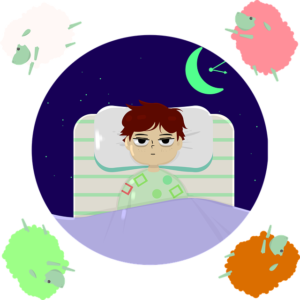
Factors of Insomnia: What Causes Sleep Woes?
Insomnia can be triggered by various factors, some of which may be present in combination:
- Stress and Worries: The modern world bombards us with stress and worries, making it challenging to unwind and find relaxation when it’s time for sleep. An anxious mind is like a thief that robs us of peaceful rest.
- Anxiety and Overthinking: Racing thoughts and excessive worry about future events can keep us up at night, unable to switch off our minds and drift into sleep.
- Depression and Emotional Turmoil: Emotional struggles, such as depression, grief, or significant life changes, can cause sleep disturbances and contribute to insomnia.
- Unhealthy Sleep Habits: Irregular sleep schedules, excessive screen time, and consuming caffeine or heavy meals close to bedtime can disrupt our body’s natural sleep-wake cycle, hindering our ability to fall asleep.
- Environmental Factors: Noisy or uncomfortable sleep environments can make it difficult to relax and get the rest we need.
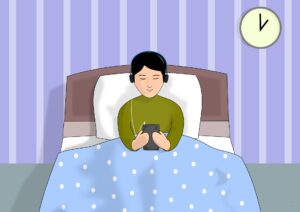
Simple Steps to Avoid Insomnia
The good news is that there are straightforward steps we can take to avoid insomnia and improve our sleep quality:
- Relaxation Time: Establish a bedtime routine that includes calming activities to unwind before sleep. Reading a book, taking a warm bath, practicing gentle stretching, or listening to soothing music can help prepare the mind and body for slumber.
- Consistent Schedule: Stick to a regular sleep schedule, even on weekends, to maintain a consistent sleep-wake cycle. This helps regulate the body’s internal clock and promotes better sleep patterns.
- Tech-Free Zone: Create a sleep-friendly environment by keeping electronic devices, such as smartphones and laptops, out of your bed. The blue light emitted by screens can disrupt the production of melatonin, a hormone essential for sleep.
- Limit Caffeine and Heavy Meals: Avoid consuming caffeine or heavy meals close to bedtime, as they can interfere with falling asleep. Instead, opt for light snacks if you feel hungry before sleep.
- Comfortable Sleep Space: Ensure your sleep space is comfortable and conducive to rest. Invest in a good mattress and pillows, adjust the lighting to a relaxing level, and keep the room at a comfortable temperature.
By adopting these simple steps, we can create an inviting sleep environment and establish healthy sleep habits, which can significantly improve our sleep quality and overall well-being.
The Role of CBT for Insomnia: A Helping Hand for Sleep
Cognitive Behavioral Therapy (CBT): What’s That?
Cognitive Behavioral Therapy (CBT) is a therapeutic approach that has proven highly effective in treating insomnia. Unlike medications, which provide temporary relief, CBT addresses the underlying causes of sleep difficulties and equips individuals with valuable coping strategies for the long term.
How CBT Helps: Sweet Dreams Ahead
CBT employs a variety of techniques to improve sleep and overcome insomnia:
- Changing Negative Thoughts: CBT focuses on identifying and challenging negative thought patterns related to sleep. By replacing these thoughts with more positive and realistic ones, individuals can reduce anxiety and stress associated with insomnia.
- Creating a Relaxing Bedtime Routine: Through stimulus control techniques, CBT helps individuals create a relaxing bedtime routine that signals to the brain that it’s time to wind down and prepare for sleep. This routine can include activities like reading, dimming the lights, or practicing relaxation exercises.
- Setting Sleep Limits: Sleep restriction is a key component of CBT, wherein individuals limit the time they spend in bed to match the actual amount of sleep they obtain. Over time, as sleep efficiency improves, the time spent in bed is gradually increased, leading to more restful sleep.
- Calming Techniques: CBT teaches relaxation techniques such as deep breathing, progressive muscle relaxation, and meditation to calm the mind and body before bedtime. These techniques promote a sense of relaxation and serenity, making it easier to transition into sleep.
By incorporating CBT into their daily lives, individuals can break the cycle of insomnia and experience improved sleep quality and better daytime functioning.
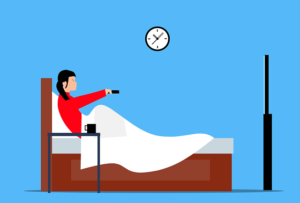
Spiritual Perspective to Avoid Insomnia: Finding Inner Serenity
Beyond the practical strategies, there’s a spiritual perspective to avoiding insomnia, which involves finding inner serenity and connecting with the deeper aspects of our being.
- Connect with the Divine: Acknowledge sleep as a time to connect with the divine and find inner peace. Embrace the belief that the universe has a higher purpose for your life, and surrender your worries to a higher power.
- Letting Go of Worries: Trust in a higher power, and allow yourself to let go of worries and fears before bedtime. Understanding that some things are beyond our control can bring peace to the mind and soul.
- Finding Serenity Within: As you lay down to rest, cultivate a sense of tranquillity within yourself. Reflect on moments of gratitude and the positive aspects of your life, focusing on the blessings rather than the challenges.
- Meditative Moments: Before sleep, engage in a short meditation or prayer to calm your mind and bring a sense of spiritual presence to your bedtime routine. This practice can promote a deeper sense of relaxation and spiritual connection.
By embracing a spiritual perspective, you can find comfort and solace in the divine, allowing you to let go of worries and experience a more profound sense of inner peace during sleep.
Conclusion: Embrace Better Sleep and Inner Harmony
In conclusion, insomnia can disrupt our sleep and negatively impact our overall well-being. However, by adopting simple steps to improve our sleep hygiene and integrating Cognitive Behavioral Therapy (CBT) techniques, we can overcome insomnia and achieve restful nights. Additionally, a spiritual perspective can foster inner serenity and a connection with the divine, further promoting a sense of peace during sleep.
Let us embrace these holistic approaches to better sleep and inner harmony. With a well-rested body and a tranquil soul, we can wake up each morning feeling refreshed and ready to embrace the new day with joy and vitality. So, here’s to sweet dreams and a well-rested, balanced life!
Learn more: Mental Health Awareness
& How is climate change affecting our mood and thus our mental health?
Bijoylaxmi Das, Mental Health Blogger, Your Confidant

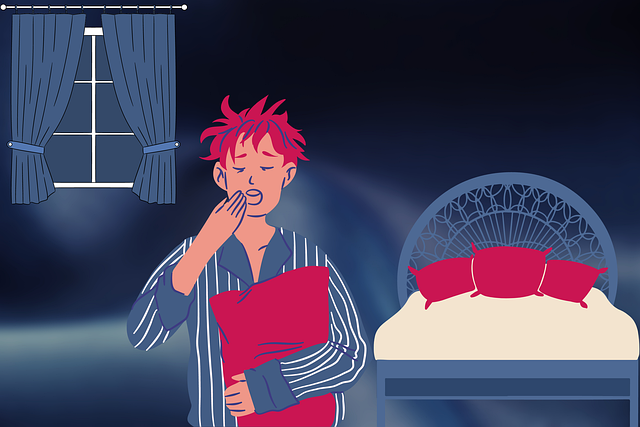
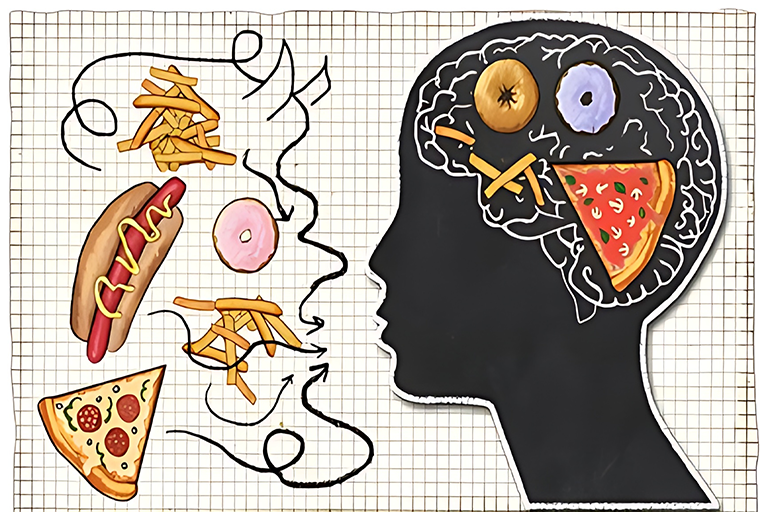

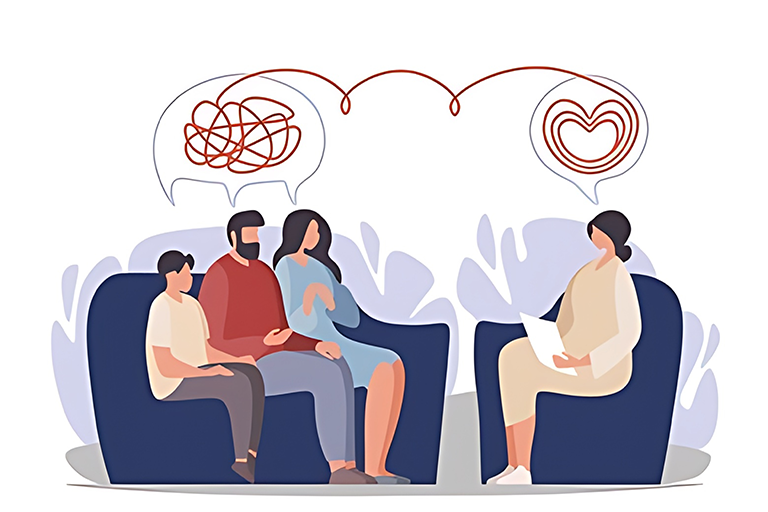
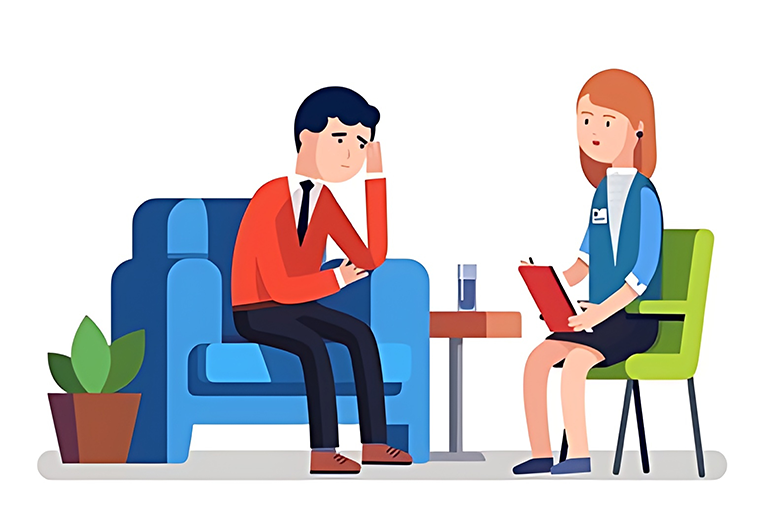
After reading this, I really need to prioritize getting some sleep because I’m experiencing all the signs of insomnia like seriously lol. Ignoring my health is not gonna get me far now is it
I totally get it. Prioritizing sleep is essential for our health. Dealing with insomnia can be tough, but it’s a smart move to tackle it. Feel better soon, and if you need advice or a chat, I’m here! 😊